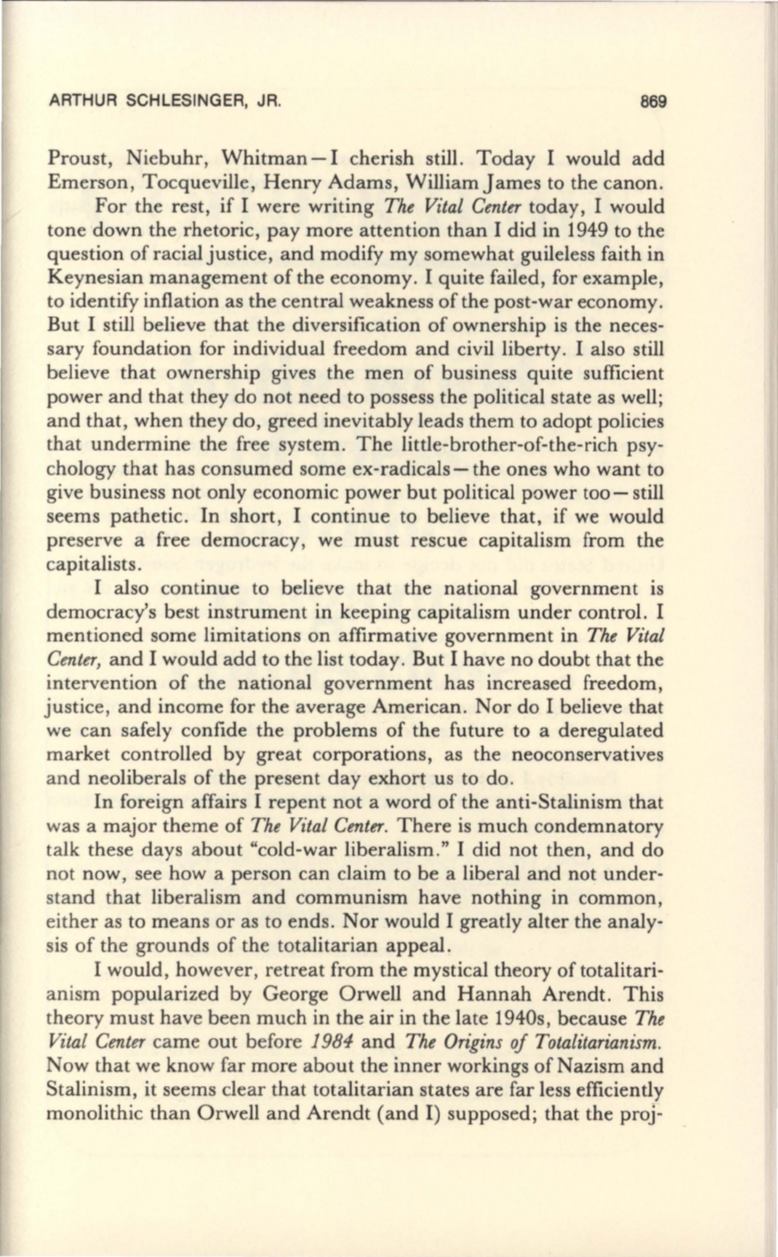
ARTHUR SCHLESINGER, JR.
869
Proust, Niebuhr, Whitman-! cherish still . Today I would add
Emerson, Tocqueville, Henry Adams, William James to the canon.
For the rest, if I were writing
The Vital Center
today, I would
tone down the rhetoric, pay more attention than I did in 1949 to the
question of racial justice, and modify my somewhat guileless faith in
Keynesian management of the economy. I quite failed, for example,
to identify inflation as the central weakness of the post-war economy.
But I still believe that the diversification of ownership is the neces–
sary foundation for individual freedom and civil liberty . I also still
believe that ownership gives the men of business quite sufficient
power and that they do not need to possess the political state as well;
and that, when they do , greed inevitably leads them to adopt policies
that undermine the free system. The little-brother-of-the-rich psy–
chology that has consumed some ex-radicals- the ones who want to
give business not only economic power but political power too- still
seems pathetic. In short, I continue to believe that, if we would
preserve a free democracy, we must rescue capitalism from the
capitalists .
I also continue to believe that the national government is
democracy's best instrument in keeping capitalism under control. I
mentioned some limitations on affirmative government in
The Vital
Center,
and I would add to the list today. But I have no doubt that the
intervention of the national government has increased freedom,
justice, and income for the average American. Nor do I believe that
we can safely confide the problems of the future to a deregulated
market controlled by great corporations, as the neoconservatives
and neoliberals of the present day exhort us to do.
In foreign affairs I repent not a word of the anti-Stalinism that
was a major theme of
The Vital Center.
There is much condemnatory
talk these days about "cold-war liberalism." I did not then, and do
not now, see how a person can claim to be a liberal and not under–
stand that liberalism and communism have nothing in common,
either as to means or as to ends. Nor would I greatly alter the analy–
sis of the grounds of the totalitarian appeal.
I would , however, retreat from the mystical theory of totalitari–
an ism popularized by George Orwell and Hannah Arendt. This
theory must have been much in the air in the late 1940s, because
The
Vital Center
came out before
1984
and
The Origins of Totalitarianism.
Now that we know far more about the inner workings of Nazism and
Stalinism, it seems clear that totalitarian states are far less efficiently
monolithic than Orwell and Arendt (and I) supposed; that the proj-


